The role of a Security Operations Center (SOC) analyst is critical in the modern cybersecurity landscape, where organizations face an increasing number of cyber threats. The SOC analyst training program is designed to equip individuals with the necessary skills and knowledge to effectively monitor, detect, and respond to security incidents. This training encompasses various aspects of cybersecurity, focusing on both theoretical understanding and practical application.SOC (Security Operations Center) Analyst training is a structured program designed to equip individuals with the skills, knowledge, and hands-on experience required to detect, analyze, and respond to cybersecurity threats. This training is critical for preparing professionals to work effectively in SOC environments where organizations monitor and protect their digital infrastructure. The training usually involves both theoretical learning and practical exercises, providing hands-on experience with tools such as Splunk, Wireshark, Nmap, and other security monitoring systems. Incident response protocols are also covered, teaching how to identify security breaches, respond effectively, and report incidents.
 Top Ranked Cyber Secuirty Course By HACKING TEACHER
Top Ranked Cyber Secuirty Course By HACKING TEACHER


































AI Powered Full Stack Web Development Course
Learn AI powered web development and futureproof your career to lead in an AI dominated tech industry.
A SOC Analyst is a cybersecurity professional responsible for monitoring and protecting an organization’s network, systems, and data against potential cyber threats. They work within a Security Operations Center, using various tools to identify and respond to malicious activities.
A SOC analyst, or Security Operations Center analyst, is a cybersecurity professional responsible for monitoring, analyzing, and responding to security incidents within an organization’s IT infrastructure. The primary role of a SOC analyst is to act as a digital watchdog, ensuring the security of networks and systems against cyber threats. They work within a team in a Security Operations Center (SOC) to detect and respond to potential breaches or attacks.
SOC Analyst courses typically cover a wide range of topics, starting with foundational concepts like networking, operating systems, and cybersecurity fundamentals. The course then dives deeper into specific areas such as incident detection, SIEM (Security Information and Event Management) tools, log analysis, and threat intelligence. Students will also learn how to handle common cyber threats such as malware, phishing, DDoS attacks, and more, and how to use various tools and software to detect, prevent, and respond to these threats.
Furthermore, college graduates or students with degrees in computer science, information technology, or cybersecurity can benefit from the specialized skills offered in SOC Analyst courses, which help them gain practical knowledge for real-world roles.
Lastly, individuals interested in obtaining certifications like Certified SOC Analyst (CSA) or CompTIA Security+ will find SOC Analyst courses beneficial for exam preparation and career progression.
































Highest Salary
Average Salary
Hiring Partners


+ Unlimited Pwnbox usage
+ CPE credits submission
+ Unlimited Pwnbox usage
+ CPE credits submission
+ Unlimited Pwnbox usage
+ CPE credits submission
+ Unlimited Pwnbox usage
+ CPE credits submission
The Hacking Teacher Certification teaches educators about teaching ethical hacking and cybersecurity with the proper skills. This program offers extensive training on some of the most technology pressing issues facing the cyber security world today including penetration testing, threat analysis and secure coding. It is ideal for IT professionals and trainers to ensure that all knowledge is transferred for audiences to inspire the next generation of cybersecurity experts.

We focus on essential exploiting topics such as SQL Injection, Wireless Networks, IoT Hacking, Cloud Computing, social engineering, sniffing, and session hi jacking.










Enterprise Attack Simulation Training is an opportunity to practice simulating cyberattacks against corporate networks on a hands-on basis. Participants learn how to find vulnerabilities, to exploit weaknesses and to evaluate system defenses using advanced tools and methodologies.
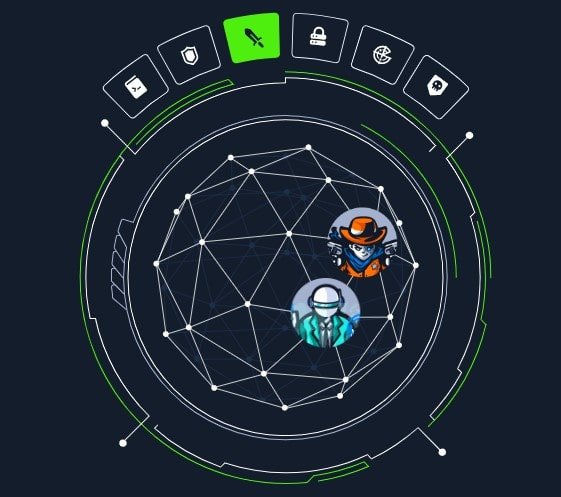
The practice is in live, not simulated virtual IT labs built according to the leading vendors certifications, including: Apart from these CompTIA, Microsoft, Cisco, VMware etc." Our labs were designed to be interactive, and targeted towards a lot of real world experience so learners can hone their practical skills. We work with subject matter experts on networking, security, cloud computing and more, and we create and deliver labs based on these core IT competencies.

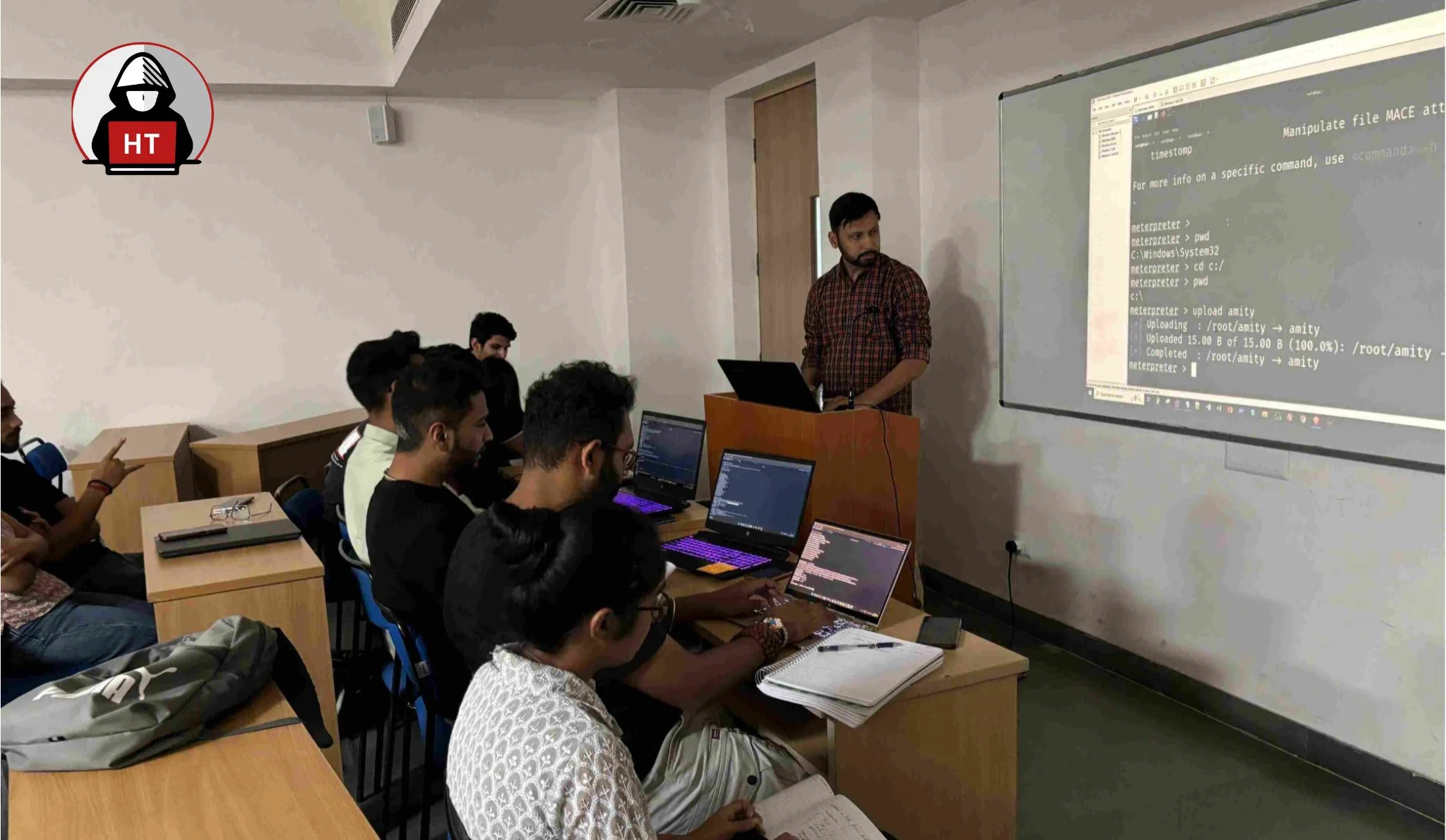
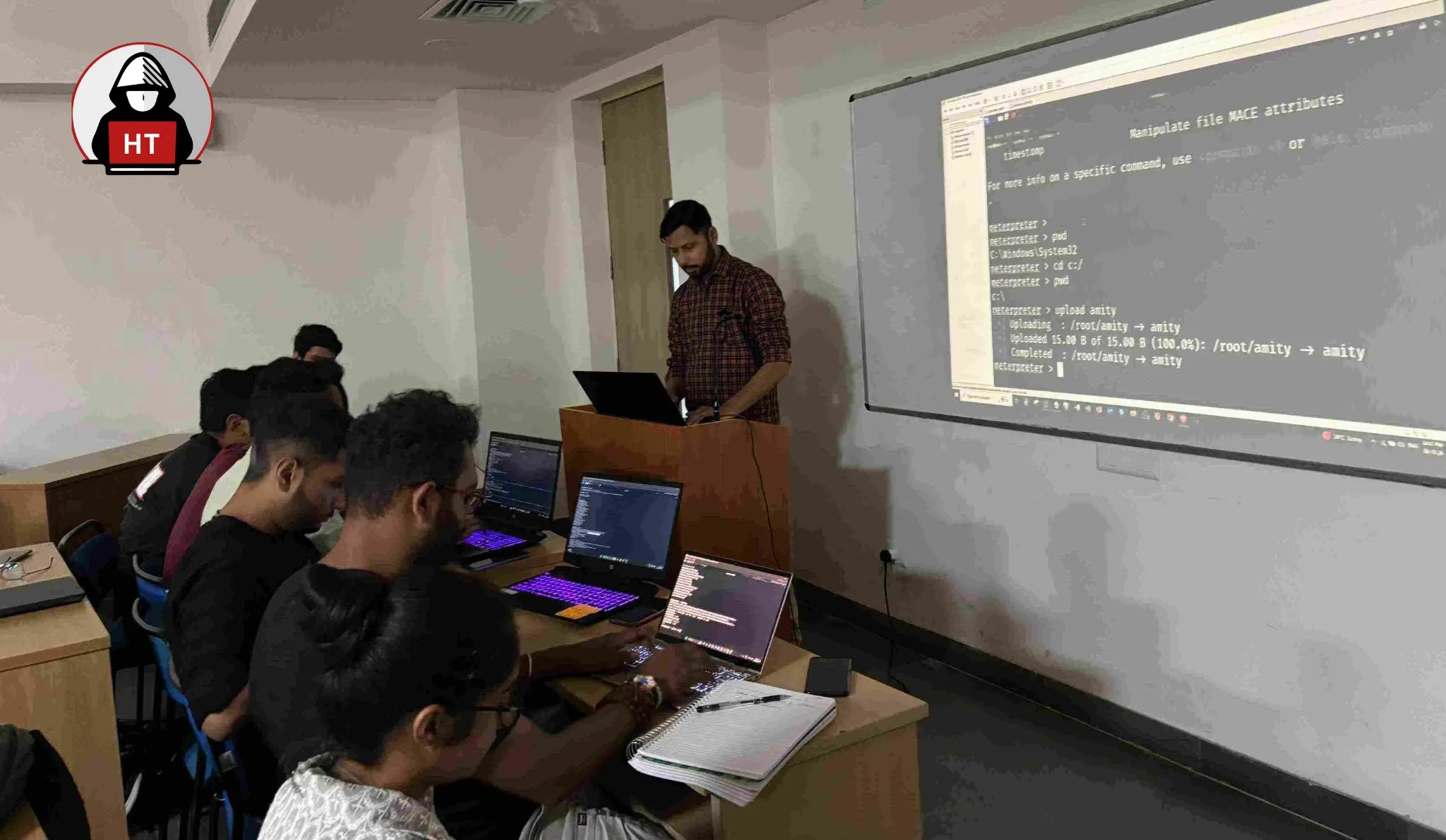
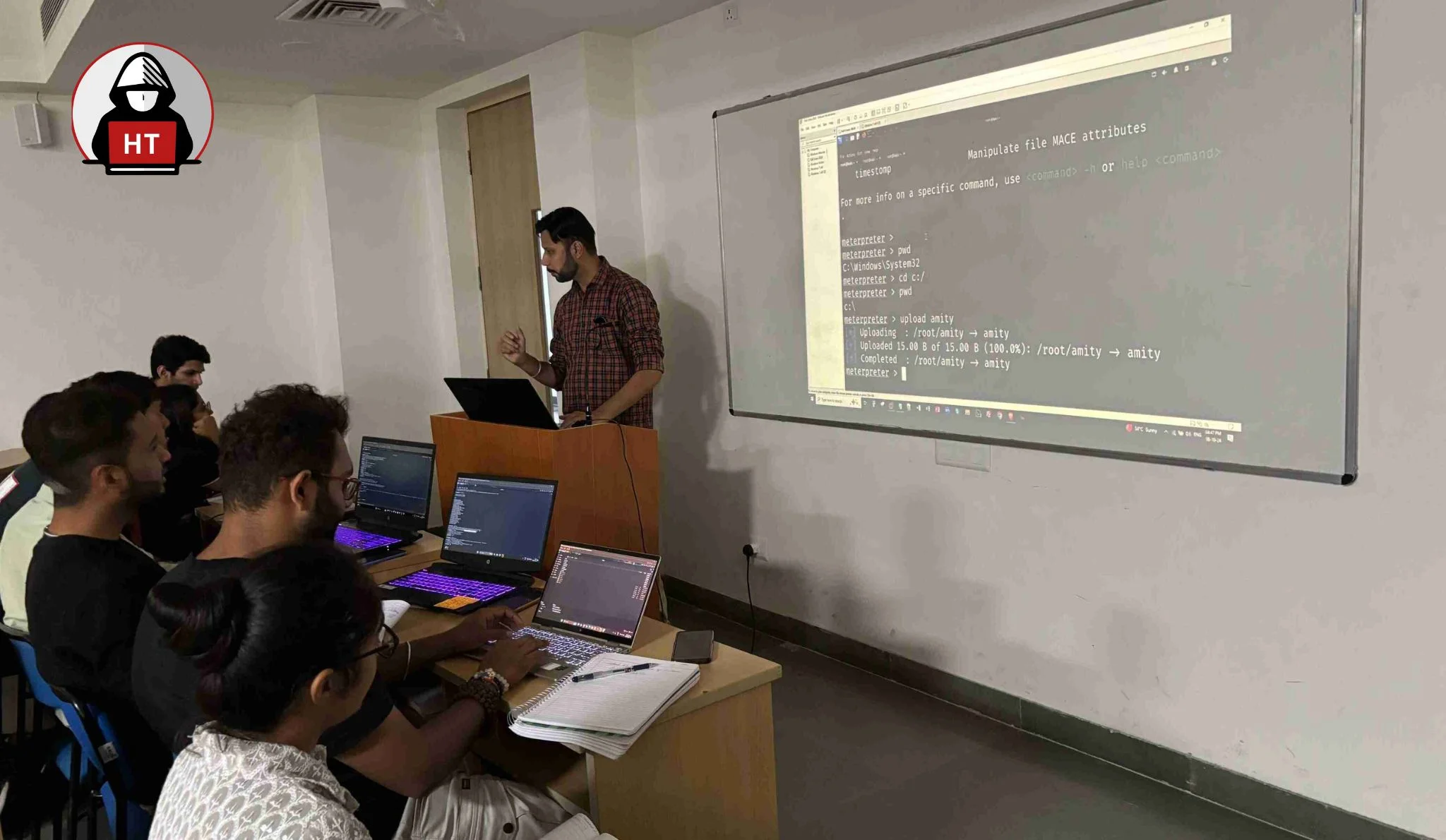
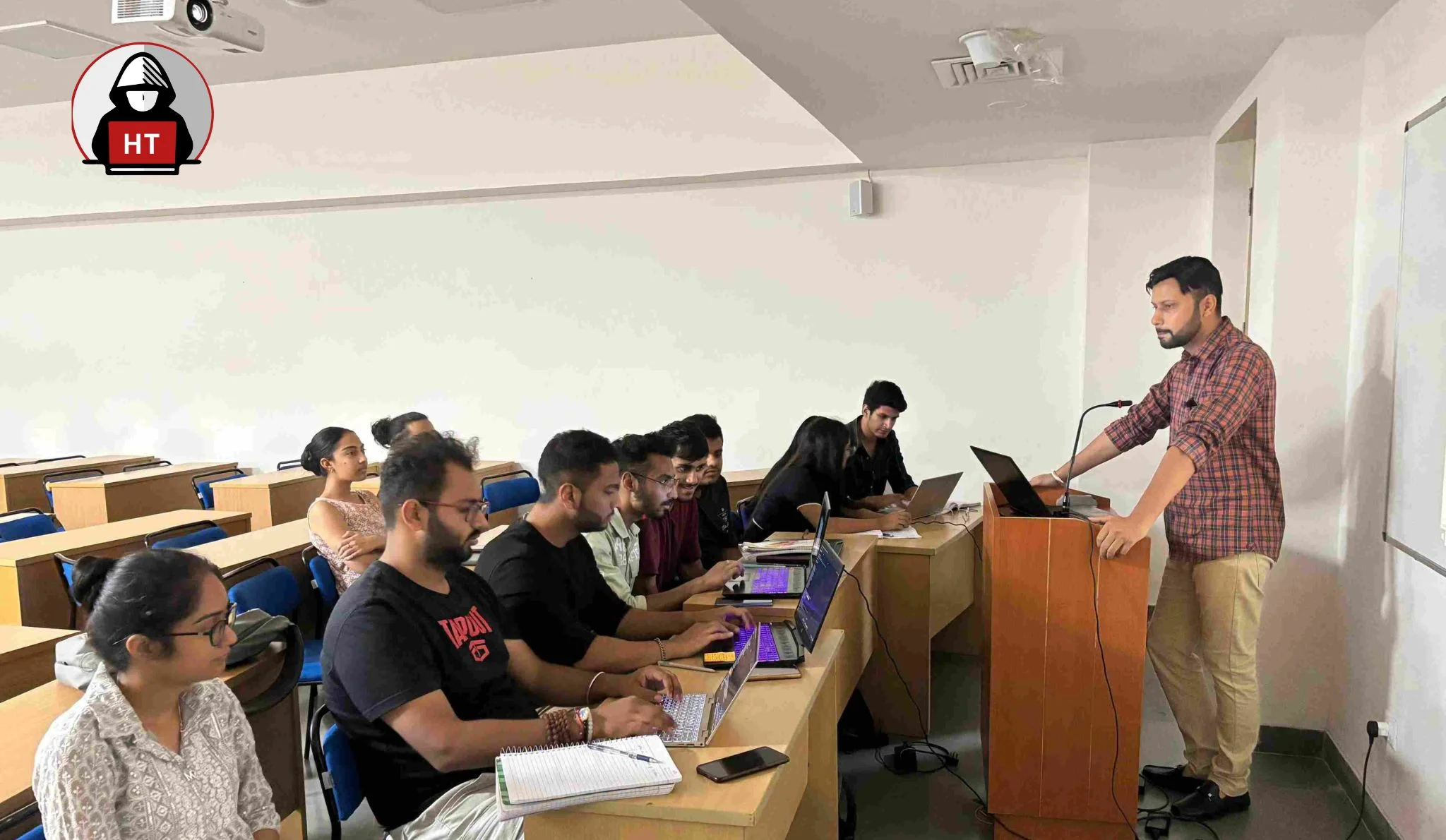
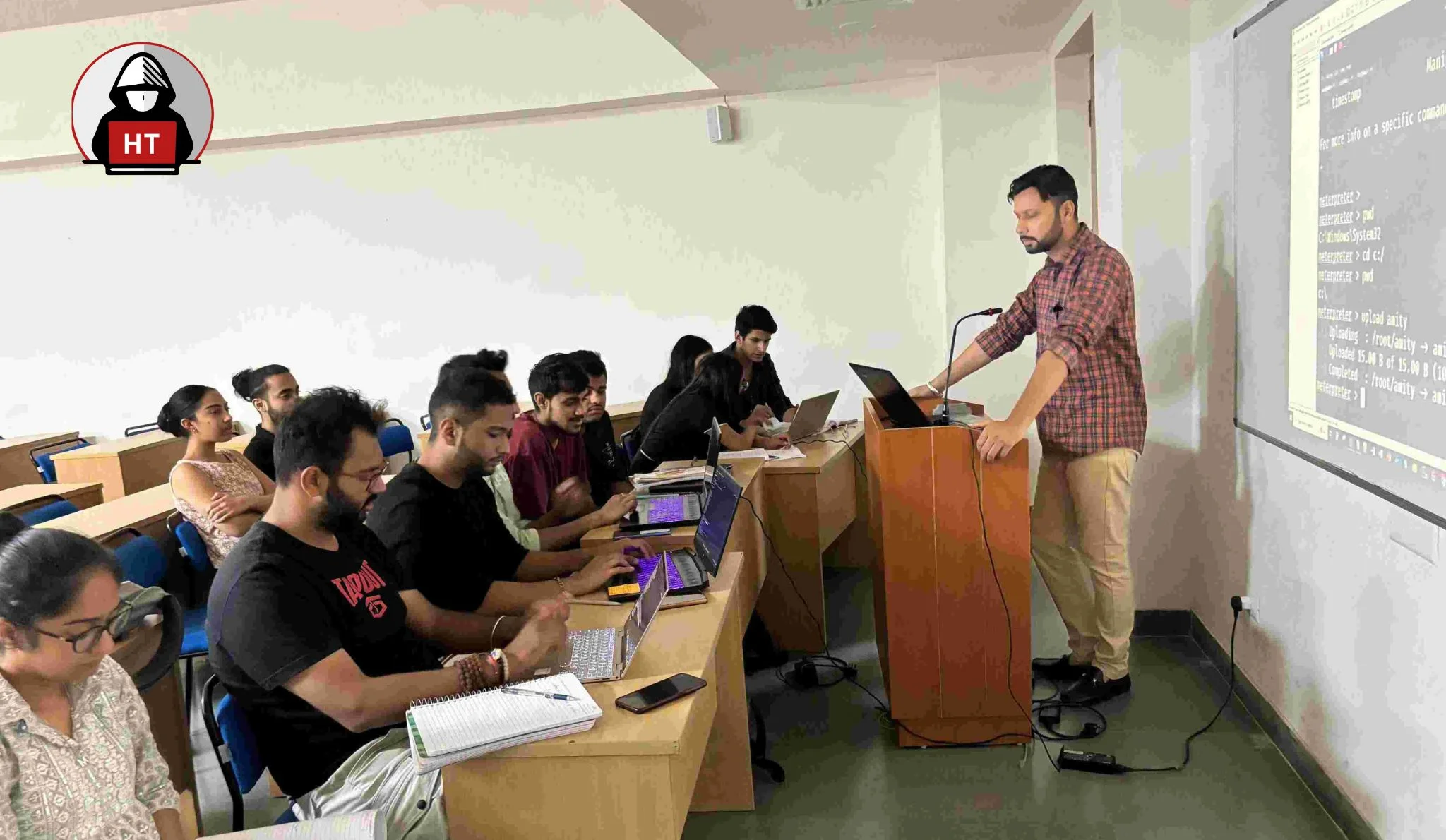
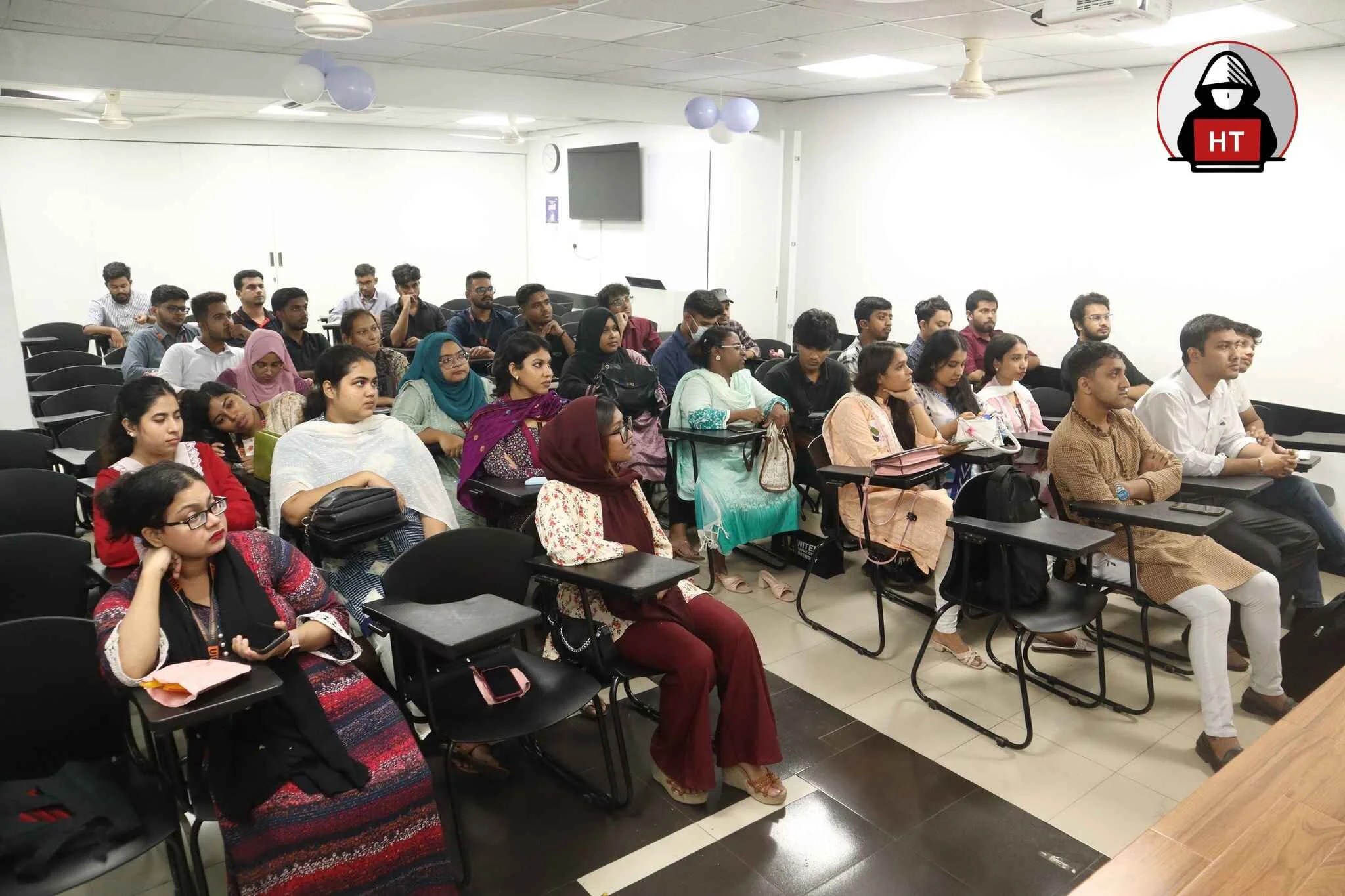
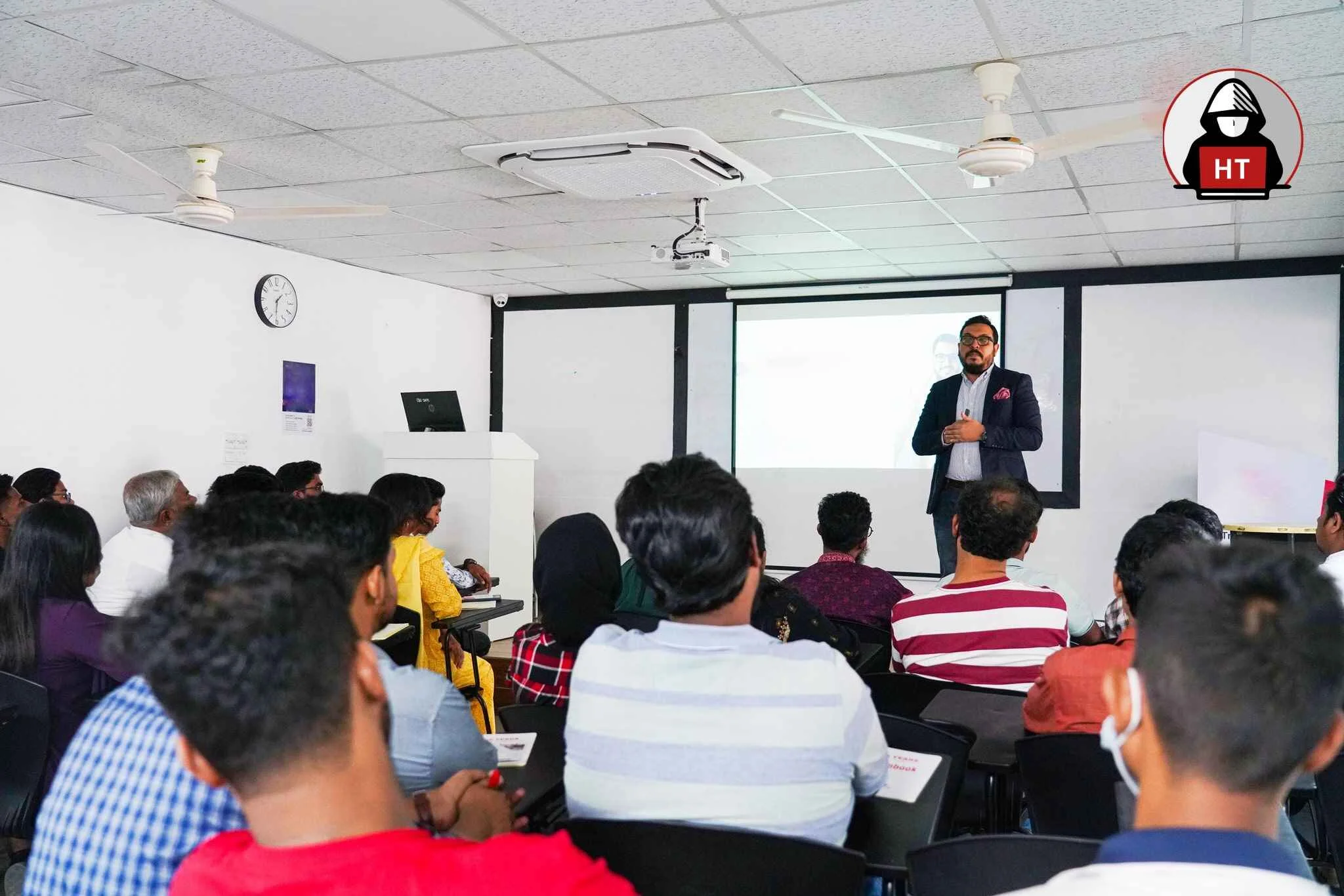


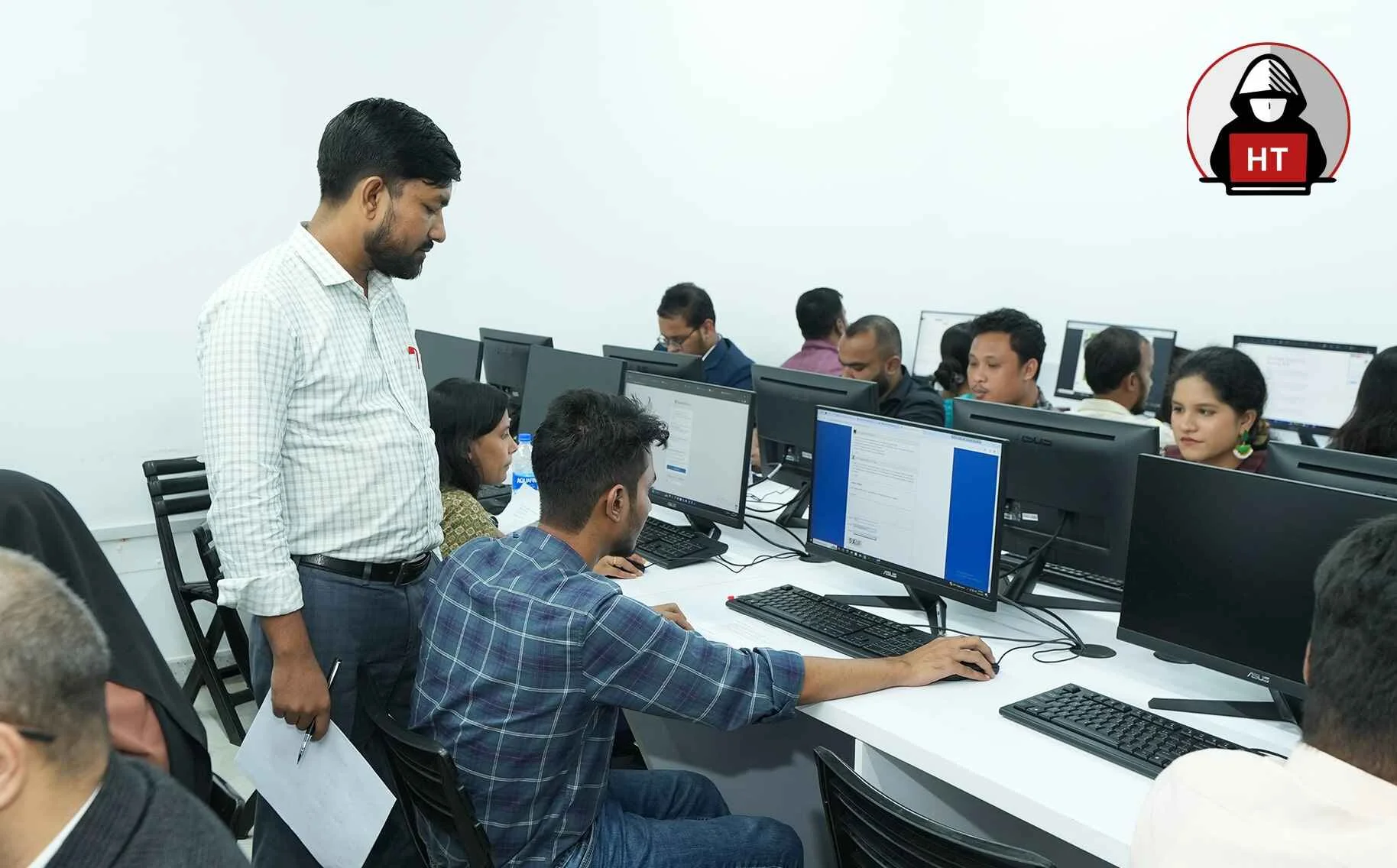
Hacking teacher Learning is here to ensure that you don’t get left behind in a world of technology that is too quickly changing. On a day to day basis, we’re recording and sharing content that can impact your bottom line.

SOC Analysts are essential in today’s cybersecurity landscape, as they serve as the first line of defense against cyber threats. They detect and mitigate threats in real-time, preventing damage to sensitive data, intellectual property, and corporate reputation.An SOC analyst is responsible for monitoring and auditing the company's systems. They also monitor network activity and ensure that no suspicious activities are happening. The SOC Analyst also works with other departments of the company, such as human resources or sales, to ensure that their systems are secure.
An SOC analyst is responsible for monitoring and auditing the company’s systems. They also monitor network activity and ensure that no suspicious activities are happening. The SOC Analyst also works with other departments of the company, such as human resources or sales, to ensure that their systems are secure. If someone in one of those departments has an issue with their work computer, it will be up to the SOC analyst to correct it.
Surveillance of an Organization’s Networks and Systems: SOC analysts monitor an organization’s IT infrastructure, including security systems, applications, and networks, to detect irregularities indicating a potential breach or attack.
Incident Response and Investigation: If further investigation or law enforcement involvement is required, SOC analysts collaborate with team members to investigate incidents thoroughly before reporting to the authorities if needed. They also document any new knowledge gained about existing threats or vulnerabilities to prevent future incidents.
Identifies, Assesses, and Mitigates Security Threats in Real-Time: Upon identifying a threat, SOC analysts work with their team to determine the cause of the anomaly and take preventive measures to avoid future occurrences.
Their main duties include monitoring security alerts, analyzing threats, coordinating responses to security incidents, investigating incidents post-occurrence, implementing best practices, and reporting incidents. They often create incident reports and may assist in forensic analysis.
A SOC (Security Operations Center) Analyst plays a critical role in protecting an organization’s digital infrastructure by monitoring, detecting, analyzing, and responding to cybersecurity incidents. Their primary responsibility is to monitor security alerts generated by various security tools, like SIEM (Security Information and Event Management) systems, intrusion detection systems, and firewalls, to identify potential threats or unusual activities. When an alert is flagged, they investigate its severity, analyze its potential impact, and determine whether it is a real threat or a false positive.
SOC Analysts are also responsible for coordinating responses to security incidents by following predefined protocols to contain and mitigate threats. They conduct root-cause analysis to understand how an incident occurred and prevent future occurrences, often collaborating with other teams. Documenting incidents, creating reports, and tracking trends in threats or vulnerabilities are also part of their duties to enhance the organization's security posture over time.
Furthermore, SOC Analysts stay updated on the latest cybersecurity threats and trends, adapting strategies and updating systems as needed. In doing so, they play a crucial role in safeguarding data integrity, minimizing business disruptions, and maintaining trust in the organization’s cybersecurity practices.
There are no official prerequisites to take the OSCP certification training, but it is recommended that candidates have a strong foundation in networking, Linux, and basic scripting languages like Python or Bash. Familiarity with basic penetration testing concepts and tools such as Nmap, Netcat, Metasploit, and Wireshark is also beneficial. .
Candidates should be comfortable with concepts such as TCP/IP networking, system administration, and common vulnerabilities, as these skills are essential for navigating the training and the exam.
Offensive Security’s PWK (Penetration Testing with Kali Linux) course, which includes access to a virtual lab environment, is designed to prepare candidates for the OSCP exam and is typically recommended as part of the training. The PWK course is self-paced, allowing candidates to practice penetration testing on a range of virtual machines and hone their skills prior to the certification exam
While it’s a given that cybersecurity professionals must demonstrate proficiency in technical skills to adapt to the evolving threat landscape, they also need to know programming languages. SOC analysts often work with cybersecurity engineers and security experts to devise threat mitigation strategies. Coding and programming skills are crucial. Sound knowledge of JavaScript, C++, and Python, to name a few, give a boost to those looking to pursue careers as SOC analysts.
While it may seem obvious, a SOC analyst must have a strong understanding of network protocols, systems, and IT infrastructure, along with knowledge of attack vectors and methodologies. Global employers highly value those with sound technical and rapid threat mitigation skills. Technology solutions are constantly evolving, which means SOC analysts should be able to learn on the fly and adapt quickly to changing threat scenarios. Most of them demonstrate excellent critical thinking skills and apply methodologies that go beyond mere textbook knowledge for dealing with threats.
Most skills cannot be learned with diligent study and require hands-on experience in the field. To identify, detect, and mitigate threats, SOC analysts should know how networks and their various elements work, including how adversaries find flaws and proceed toward exploiting them.
SOC training provides hands-on experience, enhances practical skills, and prepares individuals for real-world challenges. Training also improves confidence in handling incidents and increases employability, as companies highly value skilled SOC professionals.
Gain Knowledge Of The Centralized Log Management (CLM) Process. Able To Perform Security Events And Log Collection, Monitoring, And Analysis. Gain Experience And Extensive Knowledge Of Security Information And Event Management. Gain Knowledge Of Administering SIEM Solutions (Splunk/AlienVault/OSSIM/ELK).
SOC Analyst Training offers numerous benefits for those pursuing a career in cybersecurity. First, it provides specialized skills that are in high demand, preparing individuals to monitor, detect, and respond to security threats effectively. This training ensures proficiency with critical tools like SIEM systems, network monitoring software, and incident response protocols, equipping learners with hands-on experience that employers value.
SOC Analysts can progress to roles such as Senior SOC Analyst, Incident Responder, Threat Hunter, or SOC Manager. With experience, they can branch into specialized roles in threat intelligence, forensics, or vulnerability management.Expected Salary for SOC Analysts - Salaries vary by experience and location but typically range from $60,000 for entry-level analysts to $100,000+ for experienced professionals. Senior analysts and specialized roles may earn significantly more based on expertise and certifications.
The career path for SOC Analysts is dynamic, with opportunities for growth as organizations increasingly prioritize cybersecurity. Starting as an entry-level SOC Analyst, individuals monitor networks for threats, analyze security alerts, and respond to incidents. With experience, they can move into more advanced roles like Senior SOC Analyst or Incident Responder, where they handle more complex security events, manage teams, and develop strategies to mitigate risks.

Interview wifi Hacking

Life of Hacking Teacher

Microsoft on Vishal Sharma

Software Engineer at ByteWa
“The SOC Analysis Blue Team course provided actionable insights and practical exercises that elevated our team’s threat response capabilities. A definite must for security teams!”

Software Engineer at Accolit
“As a beginner in cybersecurity, the SOC Analysis Blue Team course was an engaging introduction to threat analysis. The practical exercises were especially helpful in building confidence. Strongly recommended for newcomers!”

Software Engineer at Beam
“The SOC Analysis Blue Team course revolutionized our approach to security incidents with its comprehensive content and hands-on labs. Highly recommended for professionals seeking real-world skills!”
FAQ
Our online courses are tailored to your specific needs, whether you are an experienced senior executive or a rookie leader.
Lorem ipsum, dolor sit amet consectetur adipisicing elit. Eum laborum qui tempora numquam!
SOC Analyst Training provides learning that aids in developing adequate skills, skills and knowledge needed for the purpose of monitoring, detecting, evaluating, and answering their security duties inside a Security Operations Center (SOC). Here you'll find information about threat intelligence, incident response, log analysis, as well as security tools.
TSOC Analyst Training roughly lasts between 2 weeks to 6 months depending on the program. Asiedu said some of those accelerated courses can be finished in about 1 month, while other programs may take longer.
A basic requirement to come into this field includes knowledge of IT systems, networking and cybersecurity. Having knowledge about SIEM (Security Information and Event Management) tools, and operating systems, firewalls and malware are useful. You must be interested in cybersecurity.
Discover what the best course for SOC Analyst Training is. Additionally, top rated courses include: Certified SOC Analyst (CSA) by EC-Council; Blue Team Level 1 by BTLO; and CompTIA Cybersecurity Analyst (CySA+). These are very well known programs that offer both theoretical and practical training.
Yes, if you can afford SOC Analyst Training in 1 month, boot camps or accelerated programs can train you on the fundamentals that the role is based on, and give you the necessary skill set to learn most of the rest on your own.
So if you are looking for the best diploma for SOC Analyst Training, the right should include programs which focused in cybersecurity, such as Diploma in Cybersecurity or Network Security. These are essential SOC skills (detection of threats, logs analysis, incident response).
With SOC Analyst Training career options are SOC Analyst, Incident Responder or Threat Intelligence Analyst. Networks are monitored by these professionals, breach security is analysed, and threats are addressed. They move up to senior cybersecurity roles mainly SOC manager or security engineer.
Yes, using online resources such as video tutorials, cybersecurity blogs, open sources, and online tools you can self learn SOC Analyst skills. Cybrary, TryHackMe and other free SIEM tools can be good resources, but formal training or certifications tend to give you a better structure and credibility.
EC Council’s Certified SOC Analyst (CSA) is suitable for beginners. Other foundational skills and industry recognition can be had from other good certifications, such as CompTIA CySA + and IBM’s Cybersecurity Analyst.
As you train yourself for a SOC Analyst role, you will need basic IT and networking knowledge, as well as cybersecurity concept awareness, and access to tools such as SIEM, IDS/IPS, and log management system. For it being a proactive learning attitude and hands on practice, only time will tell if it will prevail.
The criteria typically include basic knowledge of IT, networking, and cybersecurity concepts. Familiarity with operating systems, firewalls, and security tools is advantageous. A strong interest in cybersecurity and analytical thinking is essential.
SOC Analyst Training is among the best for individuals aiming to specialize in cybersecurity monitoring and threat detection. It is highly relevant for entry-level roles in cybersecurity and offers a strong foundation for advanced security positions.
SOC Analyst Training can be challenging, especially for beginners, as it involves learning technical concepts, using complex tools, and understanding evolving threats. However, with the right resources and dedication, it is achievable.
You can find SOC Analyst Training courses online on platforms like Hacking Teacher. Some universities and training centers also offer in-person or virtual training programs.
The Certified SOC Analyst (CSA) by EC-Council is highly recommended. Other great courses include CompTIA CySA+, SANS SEC450: Blue Team Fundamentals, and IBM Cybersecurity Analyst Professional Certificate. These courses provide comprehensive training for aspiring SOC analysts..